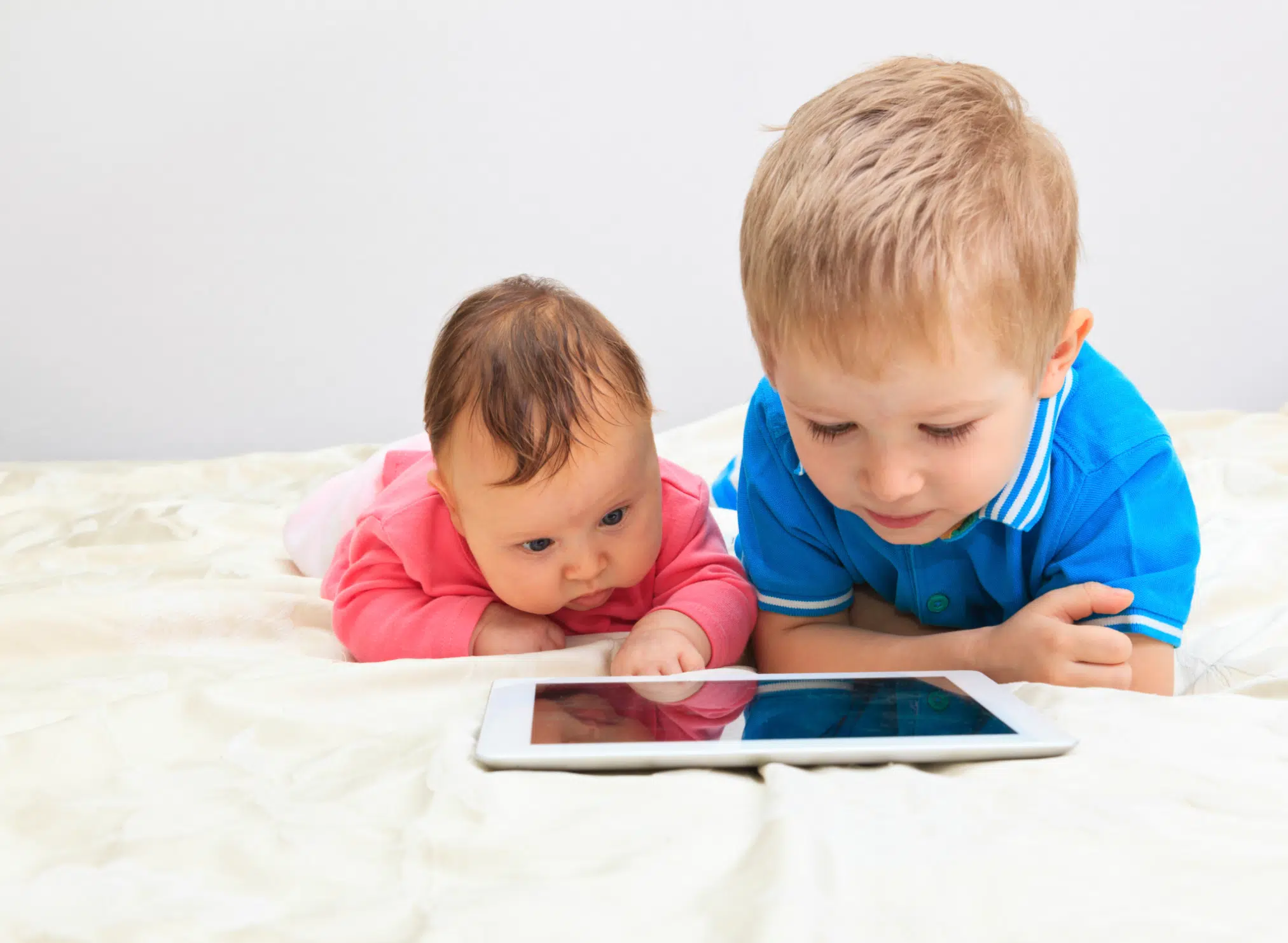When I started parenting almost twenty-five years ago, the toy aisle at the store was beginning to boast all manner of chirping, blinking, interactive toys for the toddler set. Most of these items used battery-packed bells and whistles to freshen up the toy scene, but were not truly interactive or savvy.
Fast forward a couple of decades plus and my youngest children, my seven year old twins, are carting around the cast-off iPhones of their older siblings and always pack their full HD Kindles everywhere we go. The twins were messing around on our smart phones while they were still teething, able to open up game screens while chewing on their pacifiers. Their tech skills were curated early in their toddlerhoods and their capabilities as young elementary school kids are pretty astonishing.
While I’m fascinated to see how quickly young children take up with tech and how quickly they learn its ways, it does make for unchartered territory in the child development and parenting game. Just a few years ago we were concerned about how much television young kids were watching; now we’re trying to navigate apps, cartoons available immediately on a screen near you at the park, the mall, the playground, the back porch. In 2011, over three million Fisher Price infant and toddler apps were downloaded…infant and toddler, people. (source: http://www.commercialfreechildhood.org/screendilemma) Gone are the days of teething rings and rattles. Now baby is manning a smartphone between feedings. Screens are so much a part of the landscape everywhere. And for busy, stressed parents, let’s just be honest; screens work. When it’s been a long day and your last nerve is getting split ends, nothing calms the marauding hoards of preschoolers like a screen.
But it’s a grand experiment at this point. We’ve never navigated these waters with this level of technology and media with any generation of children ever before. We don’t know what the outcomes, the benefits and the dangers really are.
Here’s what we do know. Young children learn social adeptness and bonding from…wait for it…human interaction. Regardless of how we choose to incorporate technology into our toddlers’ lives, it is critical that they first and foremost experience deep interaction with us, that we model creative play alongside them, that we read to them and talk to them and laugh. These interactions must make up the majority of the stimulus in their young lives for healthy brain and relational development. Studies are showing that young children who spend too much time on screens have problems with attention deficit and social/emotional intelligence. Creating appropriate boundaries in which young children interact with screens in all their iterations is critical.
We use a budget system for the amount of time our younger kids are on screens. We generally limit video games to the weekend. We keep the television off most of the day and, when we have it on, try for keeping it tuned to documentary or learning programs. For iPods and tablets, we keep the majority of the games ones that are geared for learning, reading skills, math logic and science. All that said, we definitely have some times of binge cartoon viewing, games that seemingly have no point and the occasional discovery that the kid who’s been so quiet all afternoon has actually been secreted under a blanket in the game room sneaking in obscure Pokeman viewing. This level of access is new frontier for us, even with the years of parenting under our belts. We are having to be more aware, more intentional and better informed than ever.
Screens aren’t going away for our kids and they will need strong technology skills for their futures. We’ll have to help coach them in what healthy levels of viewing and gaming are. With any new tool, simple guidelines and good oversight form the bedrock for safe use. Determine ahead of time how much viewing works for your child. Create a plan for budgeting that time. Most importantly, stick to it. Consistency, consistency, consistency will be the primary factor in developing a healthy tech diet. And if you have a child who naturally seems to struggle with person to person interaction and seems to have a strong affinity for being on tech, that’s the kid you’ve got to limit the most when it comes to screens. Child development specialists tell us those are the kids who are most at risk for developing social anxiety and difficulty bonding. In the same way we limit candy and sodas in the interest of better health for our kids, tech needs to be viewed similarly…a nice treat but certainly not meant for a complete diet.












